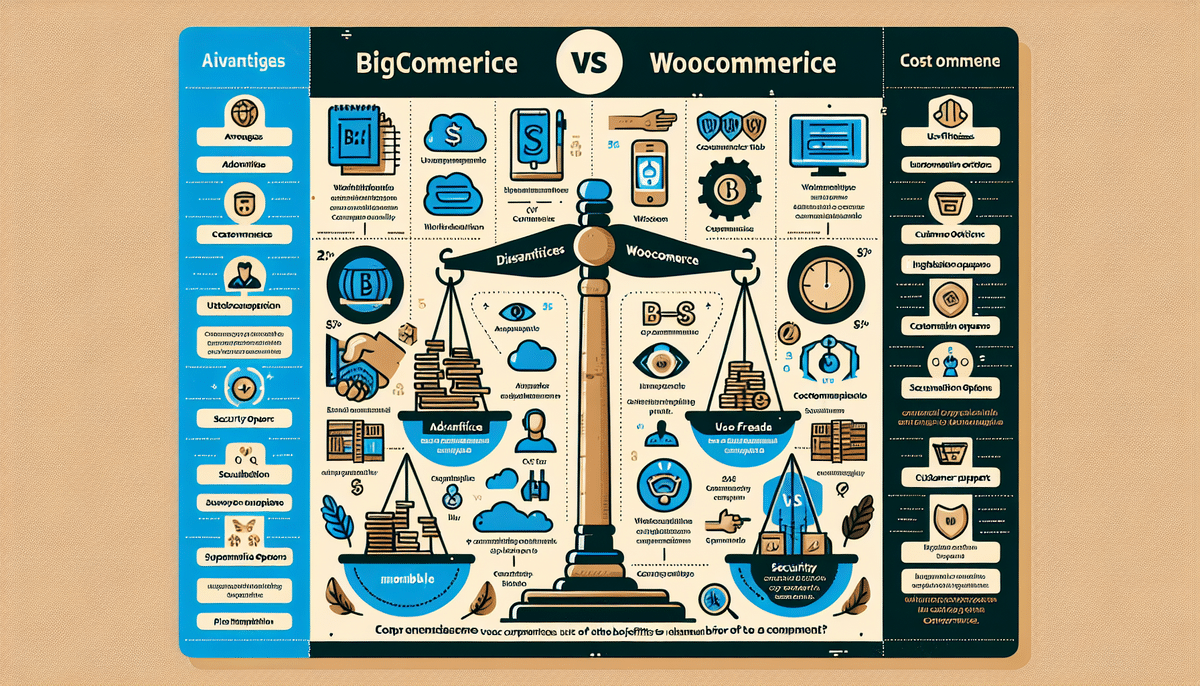Magento (Adobe Commerce) vs BigCommerce: A Comprehensive Comparison
Choosing the right eCommerce platform is pivotal for the success of your online business. With numerous options available, making an informed decision can be challenging. This comprehensive comparison between Magento (Adobe Commerce) and BigCommerce will help you understand which platform best aligns with your business needs.
Introduction to Magento (Adobe Commerce) and BigCommerce
What is Magento (Adobe Commerce)?
Magento (Adobe Commerce) is an open-source eCommerce platform acquired by Adobe, offering a highly customizable and scalable solution suitable for businesses of all sizes. It provides advanced features like complex product management, multi-store capabilities, and robust SEO tools.
What is BigCommerce?
BigCommerce is a cloud-based eCommerce platform designed to offer an all-in-one solution for online store owners. It emphasizes ease of use with a user-friendly interface, built-in features, and a variety of customizable templates that require minimal technical knowledge.
Feature Comparison
Pricing Plans
Magento (Adobe Commerce) offers a flexible pricing structure tailored to the needs of larger businesses, often requiring custom quotes based on the specific requirements. While the open-source version is free, costs arise from hosting, extensions, and development.
BigCommerce provides straightforward pricing tiers:
- Standard
- Plus
- Pro
- Enterprise
Each plan includes hosting and access to core features, making it easier for businesses to manage expenses without unexpected costs.
Technical Details
Magento (Adobe Commerce) is a self-hosted platform, granting complete control over the website's technical aspects. This allows for extensive customization but requires technical expertise for setup and maintenance.
BigCommerce is a fully-hosted platform, handling server maintenance, updates, and security. This reduces the technical burden on the user, allowing them to focus on business operations.
Features and Functionality
Magento (Adobe Commerce) excels in flexibility and customization, offering advanced product management, multi-store support, and powerful SEO tools. It supports a vast array of custom extensions and integrations.
BigCommerce offers a comprehensive set of built-in features, including payment and shipping integrations, marketing tools, and analytics. Its platform is designed to be user-friendly, with customizable templates that require no coding.
Ease of Use and Customization
Magento (Adobe Commerce) has a steep learning curve and demands technical expertise to leverage its full potential. However, it allows for unparalleled customization to create unique online experiences.
BigCommerce provides an intuitive interface, making it accessible for users without technical backgrounds. Customization is streamlined through pre-built templates and themes, enabling quick setup and deployment.
Integrations with Third-Party Apps and Services
Both platforms support integrations with various third-party applications, including payment gateways, marketing tools, and shipping services. Magento (Adobe Commerce) offers more extensive integration options, catering to businesses with complex operational needs.
Integrating with reputable services like PayPal, Salesforce Commerce Cloud, and others can enhance functionality and streamline business processes.
Security Features
Security is paramount for online businesses. Both Magento (Adobe Commerce) and BigCommerce offer robust security features, including SSL certificates, PCI compliance, and fraud protection.
Magento (Adobe Commerce) provides additional security measures such as:
- Two-factor authentication
- Role-based access control
- Advanced encryption standards
This level of security is ideal for businesses that handle sensitive customer information and require stringent security protocols.
SEO Capabilities
Effective SEO is crucial for visibility and traffic generation. Magento (Adobe Commerce) offers extensive SEO capabilities, providing control over meta tags, URL structures, canonical tags, hreflang tags, and schema markup. These features enable businesses to optimize their websites comprehensively for search engines.
BigCommerce also includes solid SEO tools such as customizable URLs, meta descriptions, and automatic sitemaps. While it offers fewer advanced SEO options compared to Magento, it still provides the necessary tools for effective search engine optimization.
Mobile Responsiveness and Performance
In an increasingly mobile-driven market, both platforms ensure mobile responsiveness. Magento (Adobe Commerce) allows for extensive customization to optimize mobile performance. It also includes a built-in caching system to enhance website speed and handle high traffic volumes efficiently.
BigCommerce offers responsive themes that ensure your store looks and functions well on all devices. While it may not have the same level of performance optimization as Magento, it provides sufficient speed and reliability for most small to medium-sized businesses.
Customer Support
Reliable customer support is essential for resolving issues promptly. Magento (Adobe Commerce) offers extensive self-service resources, including documentation and community forums. Enterprise clients can access personalized support with dedicated account managers.
BigCommerce provides 24/7 live chat support, email, and phone assistance. Their support team is known for responsiveness, making it easier for businesses to get immediate help when needed.
Pros and Cons
Magento (Adobe Commerce)
- Pros:
- High flexibility and extensive customization options
- Scalable for large enterprises
- Advanced SEO capabilities
- Comprehensive security features
- Large community of developers and users
- Cons:
- Steep learning curve
- Requires technical expertise
- Higher total cost of ownership due to additional expenses
BigCommerce
- Pros:
- User-friendly interface
- All-in-one hosted solution
- Built-in features and integrations
- 24/7 live chat support
- Faster setup and deployment
- Cons:
- Limited customization compared to Magento
- Higher monthly subscription fees for advanced features
- Less control over technical aspects
Conclusion: Which Platform is Best Suited for Your Business?
Selecting the right eCommerce platform depends on your business's size, goals, and specific requirements. If you are a large enterprise seeking extensive customization, scalability, and advanced features, Magento (Adobe Commerce) is the ideal choice. Its robust capabilities cater to complex business needs and high traffic volumes.
Conversely, if you are a small to medium-sized business prioritizing ease of use, quick setup, and comprehensive built-in features without the need for extensive technical knowledge, BigCommerce is the better option.
Ultimately, both platforms are powerful in their own right. Evaluate your business objectives, budget, and technical capabilities to determine which platform aligns best with your eCommerce strategy.






















